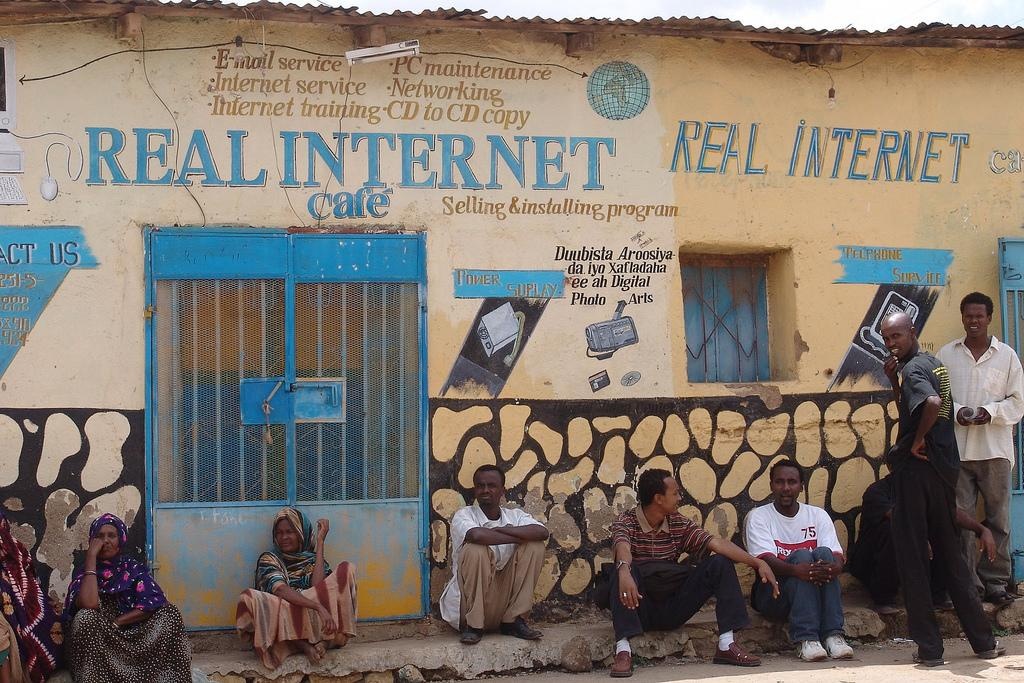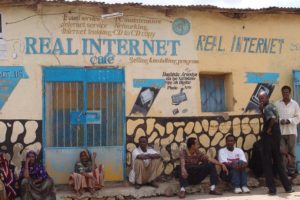

ESAT News (November 18, 2016)

Ethiopia has never been an easy place to operate. But a six-month state of emergency, combined with internet and travel restrictions imposed in response to a wave of anti-government protests, means it just got a whole lot harder, says a report by IRIN.
The report by the former media wing of the UN, independent since 2015, said internet shutdown has impacted everyone: from local businesses, to foreign embassies, to families, as well as the extensive and vital international aid community.
“Non-governmental organisations play crucial roles in developing countries, often with country offices in the capitals, satellite offices across remote regions, and parent organisations in foreign countries,” said Moses Karanja, an internet policy researcher at Strathmore University in Nairobi. “They need access to the internet if their operations are to be efficiently coordinated.”
The Ethiopian regime has singled out social media as a key factor in driving unrest. Since the beginning of October, there has been a spike in violence resulting in millions of dollars’ worth of damage to foreign-owned factories, government buildings and tourist lodges across Oromia Region, initially ground zero for the dissent.
An aid worker, who didn’t want to be identified as her agency needs to renew its government permit, explained how she relies on Skype to communicate with far-flung colleagues.
“Before, it was hard enough, but now Skype is even more unreliable,” she said. “People can’t connect with colleagues in the field; people miss invites to meetings, can’t arrange logistics.”
The IRIN report said the squeeze comes at a particularly bad time for Ethiopia, beyond the impact of the protest movement. Ten million people are in need of food aid as a result of drought.
The importance of social media to people’s lives in Ethiopia is magnified because they so distrust mainstream media, largely controlled by the EPRDF. The Oromia and Amhara regions, where most of the anti-government unrest is happening, have some of the largest numbers of people requiring assistance.
“Websites like the famine early warning system, FEWSNET, which provides detailed regional analysis and projections on food insecurity, cannot be accessed by most stakeholders,” said an international development official.
Many humanitarian organisations, including UN agencies, are heavily reliant on cash transfers to government organisations that conduct work on their behalf. They are finding it much harder to account for funds.
Another aid worker, again speaking to IRIN on condition of anonymity due to the sensitivity of operating in Ethiopia, said everything was getting delayed, including the rolling out of new programmes.
“If we can’t email or phone, we can’t find out how money has been spent, and if we can’t account and there’s no transparency, we can’t authorise new spending,” the aid worker said.
Even before the state of emergency, Ethiopia was one of the most censored countries in the world and a top jailer of journalists, according to the Committee to Protect Journalists.
Independent media does exist in Ethiopia, but it struggles. Last month, the Addis Standard, a well-respected private magazine, announced it was stopping its print edition due to the latest round of restrictions.
“The government has created this problem for themselves,” remarked a freelance Ethiopian journalist.
Internet shutdowns between mid-2015 and mid-2016 have lost the Ethiopian economy about $9 million, according to a recent report by the US-based Center for Technology Innovation at the Brookings Institution.